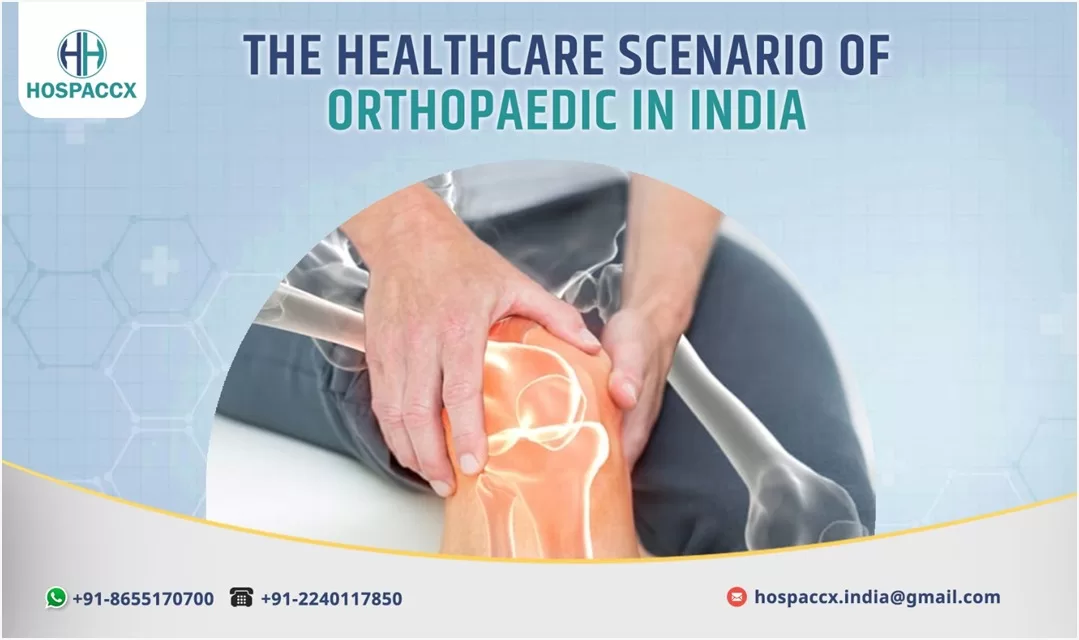Overview
Rwanda, officially the Republic of Rwanda is a sovereign state in Central and East Africa and one of the smallest countries on the African mainland, located a few degrees south of the Equator. Rwanda is bordered by Uganda, Tanzania, Burundi and the Democratic Republic of the Congo. Rwanda is in the African Great Lakes region and is highly elevated; its geography is dominated by mountains in the west and savanna to the east, with numerous lakes throughout the country. Rwanda aid divided into provinces – these are Northern Province, Southern Province, Eastern Province, Western Province, and the Municipality of Kigali in the centre. The country’s principal language is Kinyarwanda, which is spoken by nearly all Rwandans.
Population Mix
| Current Population | 13,780,331 |
| Population Density | 525 per Km2 (1,312 people per mi2) |
| Total Land Area | 24,670 Km2 (9525 sq. Miles) |
| Urban Population | 2,332,419 (17.57%) |
| Rural Population | 10,944,098 (82.43%) |
| Median Age | 20 years |
- Rwanda population is equivalent to 0.16% of the total world population.
- Rwanda ranks number 77 in the list of countries (and dependencies) by population.
Connectivity
Kigali International Airport (IATA: KGL, ICAO: HRYR), formerly known as Gregoire Kayibanda International Airport, but sometimes referred to as Kanombe International Airport, is the primary airport serving Kigali, the capital of Rwanda. It is the main air gateway for all destinations in the country, and in addition serves as a transit airport for Goma and Bukavu in the eastern Democratic Republic of the Congo.
Economy
In 2022, GDP (growth rate) – 6.9%
GDP (PPP) – $ 2461 billion
GDP per capita – $ 2,270
GDP Composition by Sector – Agriculture : 23%
Industry : 22%
Services : 47%
- Rwanda’s economy is expected to grow by 7.9% in 2022
- Rwanda is a rural, agrarian country with about 35% of the population engaged in subsistence agriculture, and with some mineral and agro-processing.
- Tourism, minerals, coffee, and tea are Rwanda’s main sources of foreign exchange.
- The larger enterprises produce beer, soft drinks, cigarettes, hoes, wheelbarrows, soap, mattresses, plastic pipe, roofing materials, and bottled water.
- Other products manufactured include agricultural products, small-scale beverages, soap, furniture, shoes, cement, plastic goods, textiles and cigarettes.
List of Major Corporates in Rwanda
- AB Bank Rwanda
- Bourbon Coffee
- Rwandatel
- Terracom
- Silverback Cargo Freighters
- Bank of Kigali
- Rwanda Development Bank (BRD)
Growth Plans of Rwanda
Rwanda to commence construction of a US$ 200m park in Kigali
Rwanda is set to start construction of a multimillion park in its capital, Kigali, in a bid to transform the city’s landscape following ground breaking ceremony for the project. The new development will be occupied where the former Kigali City Park was, near Kigali Golf Course. This mega project will be of service to all the citizens and tourists as it will be located near Kigali International Airport for easily accessibility.
Road
Rwanda transport sector has greatly improved over the recent past. The transport sector system centres primarily on the road network, with over 1210 Km being paved.
Bugesera Airport
Mota Engil Engenharia e Construcao Africa SA finance, to construct and complete the airport by 2022. The airport will help accommodate the ever-growing air traffic in a country that’s on its march to becoming a major conference and business hub.
Healthcare Scenario of Rwanda
| Crude Birth Rate | 30.13 births/1000 people |
| Crude Death Rate | 5.8 deaths/1000 people |
| Sex Ratio | 1023 males per 1000 females |
| Infant Mortality Rate | 37 deaths/1000 live births |
| Under 5 Mortality Rate | 51.44 deaths/1000 live births |
| Maternal Mortality Rate | 290 deaths/1,00,000 live births (2015) |
| Total Fertility Rate | 3.8 children/woman |
| Life Expectancy Rate | 67.6 years (Male- 65.43 years & Female- 69.73 years) |
The health system in Rwanda is a decentralized, multi-tiered system which has a pyramidal structure: central, intermediary and peripheral. The scheme follows the geographical structure of the country (four provinces and 30 districts plus Kigali City. Each district is divided into sectors, which are divided into cells and finally villages). Medical services are provided at: referral hospitals (central level), district hospitals (intermediary level), health centres and health posts (peripheral level). The most advances services are provided at the referral hospitals, where patients will be treated by general physicians as well as specialized doctors and nurses. At the district hospitals there are doctors and nurses, offering services like minor surgery etc. The health centres only have nurses, who can run simple tests etc. Health posts in the villages are run by Community Health Workers (CHWs)
Distribution of Health Facility according to yearly bases (2013-2016)
In 2016, there were 8 National Referral hospitals, 4 provincial hospitals, and 36 district hospitals. The number of health centres (HCs) increased to 499. The numbers of health posts increased to 471.
In 2015 Healthcare Workers in public sector there were 742 doctors, 8,751 nurses/midwives and about 114 Pharmacist. This indicates that there is approximately one doctor per 17,500 inhabitants, 1 midwife per 66,000 and 1 nurse per 1,300 inhabitants.
Distribution of Healthcare Workforce
(2018 and 2021 are estimated)
The Graph Shows the Distribution of Healthcare Work Force, Doctors population increases by 5.9% every year. Nurses and Pharmacist Population increases by 0.5% and 11% annually.
There is a great lack of advanced medical equipment in Rwanda. Only public hospitals can afford to invest in scans etc. For example there is only one MRI machine in the country (which can be found at the King Faisal hospital) and a limited number of X-ray machines. Many hospitals do not have properly equipped theaters and thus cannot offer proper health care. This is one of the reasons why patients are forced to go abroad for treatment. Radiography and x-rays are specifically mentioned as sorely needed.
Mutuelle de Santé is the most common medical insurance used in Rwanda. Other types of insurances are La Rwandaise d’Assurance Maladie (RAMA), the Military Medical Insurance (MMI), and private insurances. These insurances are commonly used by households in the city of Kigali, other urban areas and among the richer citizens.
Local leaders helped identify those who were very poor and thereby not able to pay for themselves and their family. Membership is voluntary, but it is estimated that 78% of the population are insured through Mutuelle. The insurance does not include coverage at private health centers (Ministry of Health).
Causes of most deaths
The listed below diseases were the major causes of death of all ages.
- Respiratory Diseases
- Hepatitis B & C
- Typhoid
- HIV/AIDS
- Breast Cancer
Distribution of Maternal Deaths
In 2019, the major maternal death is from infection (50.9%) and the least is pulmonary edema or embolism (3.8%).
Non – Communicable Diseases
In 2016, out of total death Non – Communicable Diseases (NCDs) comprised of 29%. Further the 29% was split into, Injuries (46%), cardiovascular diseases (28%), Chronic Respiratory Diseases (10%), Diabetes (2%), Renal Diseases (6%) and Cancer (3%).
NCDs include cardiovascular diseases (CVDs), cancer conditions, renal diseases, chronic respiratory diseases, diabetes, injuries and disabilities as well as oral health, ear-nose-throat (ENT), and eye diseases.
The Global Burden of Disease Study estimated that NCD conditions accounted for 17% of the disease burden in Rwanda in 2004, while in 2014 NCDs were estimated to account for 36% of all deaths.
Available mortality data shows that cardiovascular diseases (hypertension, heart failure, and strokes) emerge as the most important causes of death among NCDs in the country.
Mental health problems are very common in Rwanda, and the prevalence of problems such as major depressive disorders and post-traumatic stress disorders.
The Ndera Psychiatric Hospital is the only national referral mental health institution in Rwanda. In addition, all of the country’s district hospitals deliver mental health care services to a certain extent. The main causes of consultation are: epilepsy (52%), psychiatric disorders (18%), psychosomatic disorders (12%), neurological disorders (8%), various psychological disorders and other conditions (10%).
Medical Tourism
Most Rwandans are on a subsistence income, with poor healthcare, but local officials still claim that they will, in years to come, become a medical tourism destination. The Central African country would like to develop regional medical tourism but needs overseas investors to set up hospitals to stop locals from going abroad for treatment and attract people from nearby countries such as Burundi, Tanzania and Uganda.
The country is currently not able to treat difficult cases of cancer, cardiovascular disease, kidney transplantations etc. This forces patients to seek medical treatment in other countries – primarily India, South Africa or Europe (Belgium).
The following sectors have been identified by the RDB and the MoH as having the highest demand in the region: oncology, cardiology and nephrology. Dentistry, neurosurgery and cardiothoracic surgery have been identified as additional areas of specialty.
UP to 100,000 people; medical tourists, go to India for medical treatment from East Africa and the number is increasing by 4% annually.
List of Medical Colleges in Rwanda
- University of Rwanda
It was established by the Government of Rwanda in 2013.
- Protestant Institute of Arts and Social Sciences (PIASS)
It is a Christian Institution of higher Learning privately owned by five Rwandan Protestant Churches, opened in 2010.
- University of Gitwe (UG)
The university established in 1993. It is the former ISPG has its definitive operating license issued by the government of Rwanda.
- University of Kigali
It is a fully accredited and chartered university by the Government of Rwanda. It is a private institute established on October 2013.
- Adventist University of Central Africa(AUCA)
It is a Private, Seventh-day Adventist institution of higher learning. It is a part of the Seventh-day Adventist education system, the world’s second largest Christian school system. Established in 1978.
List of Hospitals in Rwanda
- King Faisal Hospital (KFH)
The hospital has a bed capacity of 160 beds. It is a private hospital with ambitions to become a regional referral hospital in East Africa.
- Ruli District Hospital
It is an approved hospital owned by the Catholic Archdiocese of Kigali. This is one of two district hospitals of Gakenke district. Established in 1968.
- Croix-du-Sud hospital
The hospital today has more than 100 beds, is a privately run hospital situated in Kigali. When the clinic was established in 1995 by Dr. Jean Chrystome Nyirinkwaya.
- The Rwanda Military Hospital (RMH)
The bed capacity is approximately 300 beds .It was built in 1968 as a military referral hospital.
- The University Teaching Hospital of Butare (CHUB)
The bed capacity of the hospital is around 400 beds. It is a national referral hospital located in the southern province of Rwanda (Butare).
- The University Teaching Hospital of Kigali (CHUK)
The hospital has a bed capacity of 500 beds, is the largest public hospital in Rwanda.
- Nemba District Hospital
Established in 1974, this is one of the two hospitals that are in Gakenke District.
- Baho International Hospital (BIH) Ltd
It is a private hospital that was established in 2015 and provides care to national, regional and international patients. BIH Ltd has been given by the Ministry of Health the license to execute the activities mentioned above in Gasabo District at Nyarutarama locality.
List of Single Specialty Hospitals in Rwanda
- Dr Agarwal’s Eye Clinic
The internationally acclaimed Dr. Agarwal’s eye hospital opened in Kigali in 2013. It is considered to be the first ‘medical tourism hospital’ in Rwanda.
- Mediheal Hospital and Fertility Centre
It was established in the year 2014 as a full-fledged Diagnostic & Fertility Centre.
List of Diagnostic Centres in Rwanda
- Bio Medical Centre
Founded in 2002 by Dr. Alphonse Karagirwa, BMC initially solely provided diagnostics medicine services.
- Lancet Laboratories Rwanda
Established in September 2015 as an independent laboratory in Rwanda.
- Rwanda Biomedical Centre (RBC)
It was established on 25th January 2011.
Conclusion
Rwandan schools and teaching hospitals are unable to offer adequate levels of teaching, clinical training, mentorship, research experience, and opportunities for specialized studies. Inadequate number of medical equipments, delays the diagnosis and treatment of the patients. The private health care facilities in Rwanda are not many. Fear of Return on Investment and expense of the specialised medical equipment (i.e. transplantation and oncology) prohibit private sector from providing the specialised medical treatment. However, there is an opportunity for foreign investors to collaborate with the private owners and run a joint centre together. This will help to stop the Rwanda’s population to travel to other countries for treatment and it will also pull nearby countries population to Rwanda. There’s also scope for medical colleges with specialised studies.
















